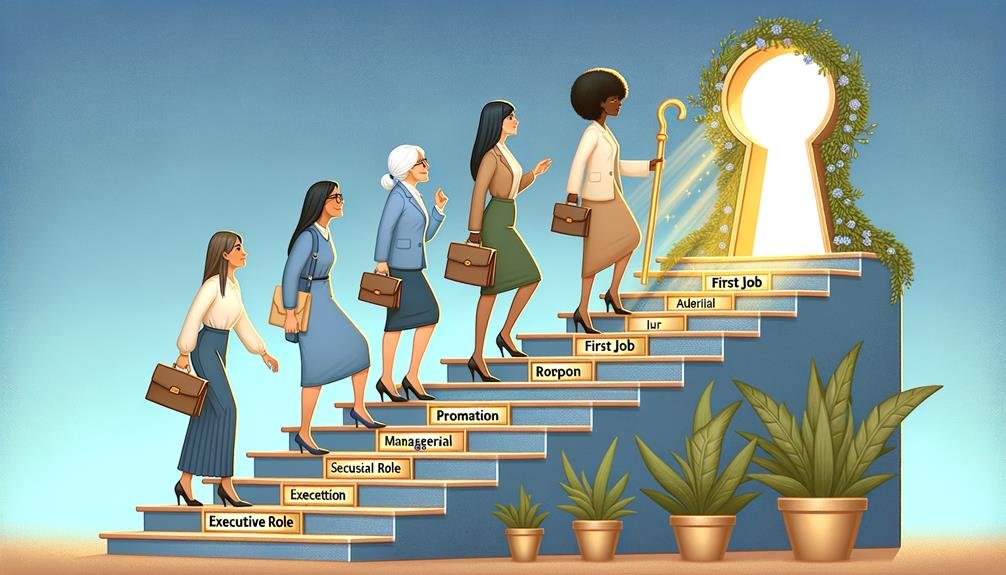Gender equality in the workplace is not just an ethical imperative but a hallmark of modern, forward-thinking organizations. As we celebrate Women's History Month, with a spotlight on the path to gender equality, it's crucial to reflect on the actions we can all take to champion this cause in our personal and professional spheres.
The Crucial Role of Frontline Managers
Frontline managers are uniquely positioned to act as catalysts for change, advocating for and nurturing female talent within their teams. Their role is instrumental in creating a supportive environment where gender equality is not merely a goal but a lived reality. By recognizing and addressing the unique challenges women face, managers can set the stage for a more inclusive culture that values diversity and promotes equity.
Beyond Recognizing Disparities to Enacting Change
It's well-documented that women face significant hurdles in the workplace, from balancing the demands of career and home to overcoming systemic biases that limit their advancement opportunities. However, recognizing these challenges is only the first step. We must strive for actionable changes, fostering an environment that supports women's career progression and well-being. This involves reevaluating work expectations, ensuring equitable hiring practices, and providing the necessary support structures that allow women to thrive.
Embracing Inclusive Leadership
Inclusive leadership goes beyond acknowledging diversity; it involves actively promoting and supporting it. Leaders must champion initiatives that ensure all voices are heard and valued, especially those historically marginalized. This commitment to diversity and inclusion is not just morally right but strategically smart, tapping into a broader range of skills and perspectives that drive innovation and performance.
Addressing and Dismantling Stereotypes
Stereotypes and biases are pervasive barriers to gender equality. By actively challenging these stereotypes and promoting a culture that respects and values diversity, organizations can begin to shift the narrative. This involves elevating women into visible leadership roles and celebrating their achievements, thereby altering perceptions of women's roles and competencies in the workplace.
Implementing Policies for Equality
Achieving gender parity requires the implementation of policies that ensure fair treatment for all employees. These policies should address hiring, promotions, compensation, and more, aiming to eliminate gender bias and foster a culture of diversity and inclusion. Such an environment not only benefits women but enriches the organization as a whole, enhancing retention and performance.
The Power of Mindfulness and Advocacy
Mindfulness and advocacy are key to advancing gender equality. Mindfulness practices empower women by reducing stress and enhancing focus, equipping them to handle workplace challenges with resilience. Advocacy efforts, meanwhile, address systemic barriers, promoting policy changes and organizational support. Together, these strategies create a supportive environment where women can achieve their professional goals.
Moving Forward with Action
Achieving gender equality is a journey that requires dedication, action, and continuous learning. One practical step leaders can take is to commit to regular, open discussions about gender equality within their teams, fostering an environment of continuous growth and understanding. By actively seeking to understand the unique challenges and perspectives of women in the workplace, leaders can implement targeted strategies that promote gender parity.
Your Role in This Journey
As we navigate the path toward gender equality, remember that each one of us has a role to play. Whether you're a leader seeking to foster a more inclusive environment or an individual advocating for change, your actions contribute to the broader movement towards equality.
If you're looking to enhance your leadership skills and further contribute to fostering a culture of gender equality within your organization, consider seeking guidance from a professional coach. As a leadership development coach, I'm here to support you in navigating these challenges, offering evidence-based strategies and a supportive environment to help you grow as a leader. Together, we can work towards creating a more inclusive, equitable, and successful workplace.
To learn more about how coaching can support your leadership journey, feel free to reach out. Let's chart the course towards a brighter, more equitable future together.







